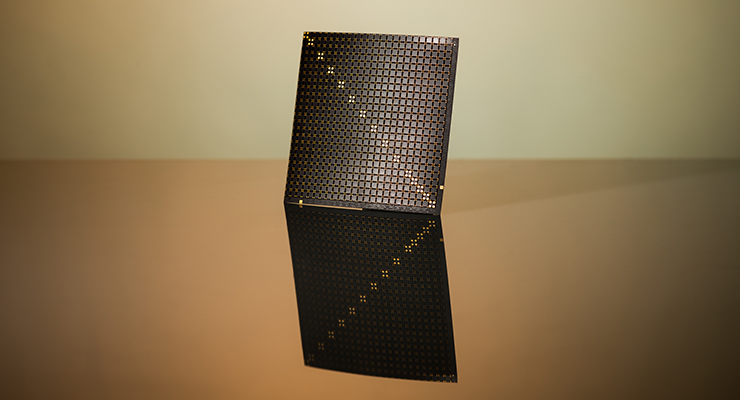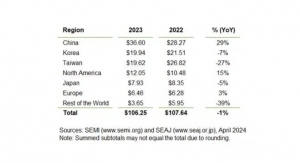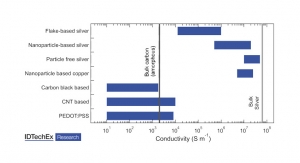David Savastano, Editor10.28.20
There is increasing interest in developing miniaturized sensors to monitor a wide range of activities, including gases. JonDeTech is making a name for itself, using its expertise in nanotechnology to develop what Leif Borg, its acting CEO, reports is the world’s thinnest sensor element.
JonDeTech started as a research project at Uppsala University, developing an IR sensor (Thermopile) in plastic with a vertical configuration. The project's objective was to create a new type of sensor - smaller, more robust and cost-efficient than the prevailing technologies.
“A prerequisite to becoming a viable commercial success is that the sensor element needed to be thin, and through nanotechnology today, the sensor element measures 0.17 mm in thickness. The world's thinnest sensor element, as far as we know,” Borg added.
One key is the use of plastic as the substrate. Due to the plastic foundation, the sensor element can be manufactured by PCB manufacturers in large volumes and cost-effective.
“The sensor element's robustness makes it possible to use without encapsulation, enabling new possibilities within sensor design,” Borg noted. “The sensor element can measure heat flux, making it possible to use one sensor element for different purposes.”
Most recently, JonDeTech received a patent for a hydrogen gas sensor developed on the company's plastic sensor elements. The sensor features nanowires drawn in plastic. The company has also recently received patents on body temperature and overheating alarm sensors.
Borg discussed JonDeTech’s recently adopted go-to-market strategy.
“We identified a handful of global Asian component manufacturers and ODMs (Original Design Manufacturers) with existing customer bases and established channels into the consumer electronics market,” he noted. “Actors through which we also saw an opportunity to create joint development projects and thus lay the foundation for scalable and robust growth.
“This has so far resulted in three different strategic collaborations with the world's largest modular house, OFILM, which has given the company's sensor elements a clear confirmation of a so-called ‘product/market-fit.’ The collaborations in biometric locks and temperature measurement with a mobile phone and presence detection for laptops mean both individually and altogether great opportunities for JonDeTech to obtain a strong position in the high-volume market for consumer electronics,” Borg added.
Borg pointed to a number of key advantages to JonDeTech’s IR sensors, including the ability to produce high volumes at a low cost, combined with its small size and robustness. He added that it is possible to mount directly on a PCB without any encapsulation. The response has been excellent.
“(We have had) great response from the market as our sensor element opens up new possibilities to design low-cost modules and components for presence detection and temperature measurement,” added Borg.
Borg sees a bright future for JonDeTech. In addition to its collaboration with OFILM, the company is working with Intel on its Project Athena. The company also completed a funding round, raising $4 million.
“In our collaboration with OFILM, two of the three projects are ready to go and are now awaiting the completion of our tech transfer to a high-volume producer,” Borg noted. “We recently closed a funding round that will help us both speed up the tech transfer and progress on developing our second-generation sensor element. With a clear market interest, not least driven by Intel’s ambitions of driving down energy consumption in laptops, we do see a bright future in our unique nanotechnology.”
JonDeTech started as a research project at Uppsala University, developing an IR sensor (Thermopile) in plastic with a vertical configuration. The project's objective was to create a new type of sensor - smaller, more robust and cost-efficient than the prevailing technologies.
“A prerequisite to becoming a viable commercial success is that the sensor element needed to be thin, and through nanotechnology today, the sensor element measures 0.17 mm in thickness. The world's thinnest sensor element, as far as we know,” Borg added.
One key is the use of plastic as the substrate. Due to the plastic foundation, the sensor element can be manufactured by PCB manufacturers in large volumes and cost-effective.
“The sensor element's robustness makes it possible to use without encapsulation, enabling new possibilities within sensor design,” Borg noted. “The sensor element can measure heat flux, making it possible to use one sensor element for different purposes.”
Most recently, JonDeTech received a patent for a hydrogen gas sensor developed on the company's plastic sensor elements. The sensor features nanowires drawn in plastic. The company has also recently received patents on body temperature and overheating alarm sensors.
Borg discussed JonDeTech’s recently adopted go-to-market strategy.
“We identified a handful of global Asian component manufacturers and ODMs (Original Design Manufacturers) with existing customer bases and established channels into the consumer electronics market,” he noted. “Actors through which we also saw an opportunity to create joint development projects and thus lay the foundation for scalable and robust growth.
“This has so far resulted in three different strategic collaborations with the world's largest modular house, OFILM, which has given the company's sensor elements a clear confirmation of a so-called ‘product/market-fit.’ The collaborations in biometric locks and temperature measurement with a mobile phone and presence detection for laptops mean both individually and altogether great opportunities for JonDeTech to obtain a strong position in the high-volume market for consumer electronics,” Borg added.
Borg pointed to a number of key advantages to JonDeTech’s IR sensors, including the ability to produce high volumes at a low cost, combined with its small size and robustness. He added that it is possible to mount directly on a PCB without any encapsulation. The response has been excellent.
“(We have had) great response from the market as our sensor element opens up new possibilities to design low-cost modules and components for presence detection and temperature measurement,” added Borg.
Borg sees a bright future for JonDeTech. In addition to its collaboration with OFILM, the company is working with Intel on its Project Athena. The company also completed a funding round, raising $4 million.
“In our collaboration with OFILM, two of the three projects are ready to go and are now awaiting the completion of our tech transfer to a high-volume producer,” Borg noted. “We recently closed a funding round that will help us both speed up the tech transfer and progress on developing our second-generation sensor element. With a clear market interest, not least driven by Intel’s ambitions of driving down energy consumption in laptops, we do see a bright future in our unique nanotechnology.”




























